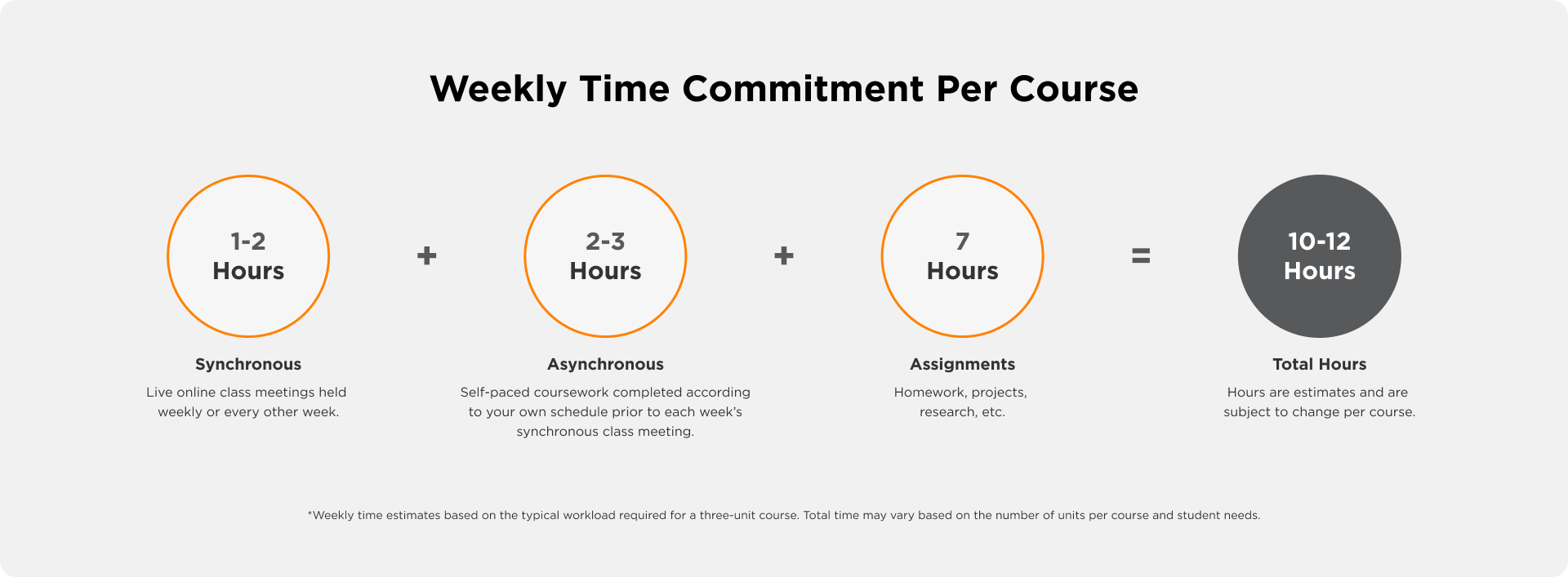Master of Science in Supply Chain Management Online
Stay ahead of supply chain shifts with a top-ranked online supply chain management degree from the University of Tennessee, Knoxville’s Haslam College of Business.
MS in Supply Chain Management Online Program Highlights
Here’s a quick snapshot of what it’s like to earn your online supply chain management degree:
30 credit hours
18-24 months
Mix of asynchronous and synchronous coursework
1 capstone project
3-day in-person immersion sessions
Full time or part time
Online Master’s in Supply Chain Management Program Overview
As part of the Global Supply Chain Institute (GSCI), we are driven by our passion for understanding and impacting how systems operate. We seek to shape the practice of supply chain management by teaching our students how the supply chain is evolving both at home and abroad.
UT Knoxville’s top-ranked online master’s in supply chain management program offers you a seamless, holistic, and flexible learning experience supported by expert faculty. You will explore supply chain concepts and functions, such as procurement, planning, manufacturing, and distribution, as well as enablers like technology and international trade. More specifically, the MS in Supply Chain Management Online empowers you to:
- Leverage supply chain management concepts and assess risk factors for better decision-making that delivers results for your organization.
- Develop powerful critical thinking skills to solve real business problems.
- Apply supply chain management process to create value for your business.
- Develop team structures, workflows, and quality control systems to work effectively with remote teams and geographically and culturally diverse teammates.
All classes are conducted online and include at least 12 hours of synchronous live sessions over Zoom where you will connect with your peers and faculty for live sessions. The live sessions use tools such as polling, in-class chat, and breakout rooms to foster collaboration. A personal student success coach and regular faculty office hours provide further individualized support throughout the program.
You will meet classmates and faculty in person during a three-day immersion experience on the University of Tennessee, Knoxville campus. Students will learn leadership and career development skills and are encouraged to build connections with current and future global supply chain management professionals during the immersion experience.
“I really enjoyed the immersion. I enjoyed conversing in person with peers I had only talked to online. I still talk to a lot of them now. I don’t know that other schools have that. The ability to come in and tour the school you’re getting your degree from, meet the professors in person, and get immersed in UT’s culture. It made you feel like you were part of the school, not another number. To me, that was a big win.”
– Russell McLendon, ‘22 MS SCM Online

Who is this program for?
The Master of Science in Supply Chain Management Online program at UT Knoxville is tailored for mid-level managers—professionals with three to ten years of work experience in supply chain management or a related field—seeking to advance their careers in supply chain management. Whether you aim to enhance your leadership skills or accelerate your career trajectory, our program offers a practical, industry-focused curriculum designed to equip you with the strategic insights and operational knowledge needed to excel in today’s global marketplace.
What You’ll Learn
Supply Chain Concepts
Master supply chain management tools, such as data modeling and financial analysis, to deliver impactful results to a company.
Supply Chain Functions
Leverage knowledge of supply chain functions like planning, sourcing, manufacturing, and logistics to support overall supply chain efficiencies.
Supply Chain Enablers
Employ critical levers like technology and international trade to benefit the supply chain.
“I had an academic advisor helping me enroll in classes and a career counselor helping me to figure out exactly the kind of job I wanted and how to demonstrate my value to employers.”
– Ron Wallace (MS SCM Online ’22)
Exploring Career Paths in Supply Chain Management
Graduates of the Master of Science in Supply Chain Management Online program are prepared to pursue a diverse range of career opportunities in supply chain management. With expertise in strategic planning, logistics optimization, and operational efficiency, our alumni are ready for roles such as supply chain manager (annual median salary: $114,750), logistics manager ($100,000), materials manager ($110,342), and buyer planner ($72,800).1
The program provides resources and individualized career support to current students who need help transitioning into supply chain-related roles. These include access to online and AI tools for feedback and tips on resumes, job interviewing, LinkedIn, and salary negotiation; networking and career preparation events; one-on-one career coaching; and the option to attend UT’s twice-yearly Supply Chain Forum events at no additional cost.
UT Knoxville’s program equips students with the skills and knowledge necessary for continued job growth and success in the global job market, enabling them to thrive in various industries and functions within supply chain management. Whether navigating procurement, distribution, or inventory management, our graduates are poised to make significant contributions to organizations worldwide.
1 Source: Association for Supply Chain Management

Event Spotlight
Fall 2025 Supply Chain Forum
Held twice a year, the Supply Chain Forum offers industry leaders, supply chain professionals, and students the opportunity to network and learn about impactful research and innovation in supply chain management from Global Supply Chain Institute’s top faculty and industry partners. The forum brings together industry professionals from over 80 companies for presentations and breakout sessions on current supply chain challenges and opportunities.
Curriculum
This course defines the principles and practice of end-to-end integrated supply chain management with particular emphasis on how supply chains create organizational value. The course covers foundational concepts on integrating business activities through improved processes and relationships to achieve and maintain competitive advantage through supply chain management.
This course explores the impact that supply chain management has on the financial performance of the organization. Coverage includes the impact of supply chain management on financial statements, budgeting, allocation strategies and related concepts.
This course explores the key issues associated with the design, modeling, and analysis of dynamic, flexible and responsive supply chain systems. Emphasis will be on the application and development of advanced modeling techniques for the analysis of strategic, tactical and operational supply chain problems including supply chain network design, inventory management, transportation management, purchasing, demand management and coordination among supply chain partners.
This course introduces students to information management strategies and tools to manage integrated supply chains. Coverage includes information technology systems used to support modern supply chains and exposure to the supply chain digitalization transition. The course aims to develop and produce supply chain professionals who can take a critical view of how information and technology can best support effective supply chain management.
This course explores development of plans for executing supply chain processes to support integration of the supply chain across major functional areas of the business including logistics, marketing, manufacturing and procurement. To facilitate achievement of these objectives, the course introduces analytical tools and techniques that provide a cause and effect understanding linking operational plans with corporate objectives. This course requires a three day immersion on the University of Tennessee, Knoxville, campus or another location.
This course addresses the processes that facilitate the structure, creation, and management of value-added transactions and relationships between supplier and customer organizations in a channel, supply chain, and integrated value system context with a particular focus on financial techniques to better manage supply chain costs. It will help students learn to apply financial measures to supply chain decision-making problems and become effective and efficient supply chain managers. This is a highly interactive class, using cases, simulations, and in-class exercises to better align “real-world” thinking while focusing on the foundations of the supply chain and the interactive role of supply management within an organization and as a boundary spanner.
This course explores the complexities of managing supply chains in a global context and provides frameworks and foundations to help SCM professionals successfully work in international environments. Issues relating to the drivers of globalization and managing the supply and demand fulfillment processes across an extended and global organization will be addressed. Topics include cross-cultural relationships, overviews of important global business regions, regional trading blocs, global operations, offshoring, infrastructure, security and risk, sustainability, market entry and other related issues.
This course covers the concepts, methods and tools that are useful in understanding the management of a firm’s operations in manufacturing and service firms. This course covers systematic planning, design and operation of all processes required for the production and delivery of goods and services. Process improvement and operational excellence tools required to operate high quality operations are highlighted.
This course addresses strategic decision making related to the physical network design and operation of the supply chain, including the location and capacity of suppliers, plants and warehouses in a logistics network that delivers products and services to end customers. The content in this course will explore the tradeoffs inherent to physical network decision making with special emphasis on managing demand and lead time variability, matching capacity to demand, centralization and pooling of inventory and achieving a total value solution. This course will apply analytic methods learned in other courses to the problems of supply chain network design and strategic inventory positioning, in order to explore theoretical relationships and to provide students with decision making skills needed in practice.
This is a capstone course, enabling students to synthesize their learning from program coursework. The global context within which firms operate will provide the foundation for understanding global supply chain strategy, from market entry through to the integration of demand management and supply management processes to meet corporate objectives. The course will utilize exercises and a simulation to allow students to analyze and synthesize program coursework. The course will help students understand how to best use program knowledge to maximize value creation for employers and in their own career.
Online Master’s in Supply Chain Management Admissions Requirements
Program Eligibility
All Master of Science in Supply Chain Management Online applicants must apply through UT Haslam. Candidates should review the graduate school’s admission procedures before applying.
Confirm your program eligibility by contacting a member of our enrollment team today.
Criteria
Admission to the MS SCM Online requires a bachelor’s degree with a minimum GPA of 2.7, or a 3.0 during the senior year of undergraduate study. Applicants with previous graduate work must have a GPA of 3.0 on all graduate work. Applicants with work experience or who are entering graduate study after a number of years away from an educational institution, usually five years, will be given consideration with greater flexibility relative to GPA. An international student graduating from a United States institution must meet the same requirements as those for domestic students.
Required Application Materials
For your MS in Supply Chain Management (SCM) Online application to be eligible for review, you must upload the following materials to your online application portal:
- Statement of purpose: A 2-3 page statement that connects your past experience to future goals.
- Transcripts: Haslam requires that you provide transcripts from the institution(s) where you earned your bachelor’s degree(s) and from all institutions where you have been enrolled or earned credit for graduate-level coursework, even if a degree was not earned. You may upload copies of unofficial transcripts for application review, but official transcripts are required to enroll. Refer to our transcript guidelines for more information.
- TOEFL scores, if applicable: International students may be required to submit results of the TOEFL (Test of English as a Foreign Language) or the International English Language Testing System (IELTS).
- Professional resume or CV: Your resume should underline relevant work experience, internships, research, awards and/or publications, as well as educational history. A curriculum vitae (CV) will also be accepted.
- $60 application fee: A $60 non-refundable application fee is required to apply for the program.
Support Resources
We encourage all MS SCM Online applicants to take advantage of our supportive enrollment advising services. Schedule an application walkthrough with your enrollment advisor today to confirm your program eligibility and ensure you have all the required admissions materials.
Tuition and Financial Aid
This page covers the expected cost of your degree, financial aid and scholarship resources and our graduates’ estimated salaries.
$1,335
Cost per Credit Hour
30
Total Credit Hours
$40,050
Total Cost of Attendance
The program fee includes:
- All university tuition and fees
- Case studies, periodicals for required reading
- Technical support for all software
The program fee does not include:
- Books, professional subscriptions and supplies
- Laptop computer (if needed, you can purchase a laptop at a discount through the UT Computer Store)
- Lodging and travel for the immersion experience
*UT reserves the right to adjust tuition and fees when deemed necessary. These are set by the UT Board of Trustees in June/July of each year.
Is This a Good Investment?
Graduates from programs like ours often find employment in a range of leadership positions. According to a 2019 GMAC Business Hiring Report, 67 percent of U.S. companies plan to hire graduates from supply chain management programs. Nationally, the average salary for many of these occupations is quite lucrative. As each graduate is unique, you should evaluate your personal goals after graduation in order to assess your earning potential.
*Source: Payscale (January 2022). These salaries are based on national averages and are subject to change.
Financial Assistance Options
MS in Supply Chain Management Online (MS SCM Online) students have a variety of options to fund their education. Some of the most frequently used funding options are included below, but we encourage you to consult with the Financial Aid Office and/or a financial advisor to determine the best options for you.
Other Scholarships
We recommend the FastWeb scholarship search site for external scholarship opportunities.
Employer Sponsorship
Many applicants’ employers provide full or partial financial assistance, as the MS SCM Online assignments relate directly to work and improve employee performance and retention. For State of Tennessee employees, please note that the entire cost of the program may not be covered by the employee education benefit. Please connect with your employer for specific details as they relate to your company.
*State of Tennessee employees, including employees of the University of Tennessee System, are eligible for partial coverage of the $1,313 cost per credit hour rate (for up to three credit hours per academic term). Email msscmonline@utk.edu for more information.
Military Service Programs
Details and eligibility guidelines for the Post-9/11 benefits, including the Yellow Ribbon Program, can be found through the Department of Veterans Affairs. Applicants can also contact UT’s Veterans Success Center: utkva@utk.edu or 865-974-1500.
Loans
The federal government provides loan options for graduate students, even if they do not qualify for need-based financial aid. The UT Financial Aid Office works with two types of U.S. federal government loans:
- Federal Direct Loans: This is generally the lowest cost loan available, for up to $20,500 every academic year. You must be a U.S. citizen or permanent resident, take at least six credits per semester, and submit the FAFSA (Free Application for Federal Student Aid) to qualify.
- Federal Graduate PLUS Loans: If you need to borrow more, then a Graduate PLUS loan can generally cover the remainder. You will need to submit the application for the Federal Direct loan prior to applying for the PLUS.
If federal loans are unavailable or insufficient, we can help you explore private or alternative education loans. Unlike federal loans, private loans do not require a FAFSA to apply. Private loans are not based on need and approval is generally based on creditworthiness and ability to repay. Some students may need to apply with a credit-worthy co-signer. Interest rates, grace periods, repayment options and fees are determined by the lender and can vary considerably from lender to lender; generally, they charge higher rates than federal loans. For more information on private loans, please visit our private lender list.
Contact
If you have any questions, please email us at msscmonline@utk.edu or call us at 865-381-2017.
Key Dates
Online Events
Program & Application Insights – Master of Science in Supply Chain Management Online
MS in Supply Chain Management Online Testimonials
Why Choose Haslam Over Other Online Supply Chain Management Master’s Programs?
At the Haslam College of Business, we commit to preparing you with the skills to solve complex problems and turn supply chain industry disruptions into advantages for your organization.
Hear from MS SCM Online students about their experience in the program, the professional connections they’ve built, and how they’re applying what they learn in meaningful ways to their lives and careers.

“I’m grateful for the knowledge, mentoring, and energy professors brought to Zoom classes. Being in the program grew my global network and allowed me to attend in-person immersion sessions and Supply Chain Forums, which were invaluable for connecting with industry leaders and learning about recent innovations.”

“I chose this program to prepare myself for roles in different functional areas of the supply chain. My coursework provided me with an overall understanding of what my supply chain partners do, how they do it, and why they do it. I am confident what I learned will set me up for a senior leadership role within my organization.”

“Our company is a start-up working to reimagine a healthcare supply chain that was decimated during the pandemic. So far, the program has reaped huge rewards for me. I have a place in the room among much bigger companies. Learning is done in real time. What I learned one day, I put to use immediately. It was remarkable.”

“I wanted a program that would provide a comprehensive understanding of the scientific principles of supply chain. I was pleasantly surprised by the exceptional level of support from the university. The unwavering commitment of the faculty and staff to my success and the achievement of my goals surpassed my expectations.”

“The program greatly broadened my perspective, from including financial language in my professional vocabulary to networking with other professionals from a wide range of organizations. I upgraded my time management to a level I wasn’t sure was possible being a wife and mom, full-time employee with travel, and full-time student.”

“When you pick UT, you know you’ll have support and camaraderie. The classes are engaging and interactive. You suddenly watch the news and current events come alive. You know you’re part of a profession that is impacting the world.”

“The courses provided real-world applications I could use after just one class. I had the opportunity to expand my circle. I spoke with peers outside of class regularly to share ideas. It’s amazing to compare the benefits we’ve seen in our workplaces.”

“Beyond academics, my career counselor helped me get the ball rolling on applications and connected me with contacts who could help me. Overall, I really grew as a professional. And it wasn’t just about presenting myself better to get another job. It’s helped me to grow as a leader and a manager.”

“One of the main things that drew me to UT was the flexibility the online program offered for working professionals. You learn from professors who have led some of the largest global organizations in the field. By enrolling in this program, I believe you commit to being a leader in the supply chain industry.”
The Online Learning Experience for UT Supply Chain Management Students
The online master’s in supply chain management offers you access to a top-ranked curriculum and expert faculty in a flexible online format. MS SCM Online students earn a degree from a renowned supply chain institution and benefit from a seamless and holistic online learning experience.
Bringing the Classroom to You
- Online programs bring a new level of flexibility to earning your master’s degree, while allowing you to fulfill your current commitments.
- Our format offers synchronous classes online every other week, giving you ample time to complete coursework and seek help from faculty between sessions.
- All of our classes are conducted online, with the exception of a short, in-person immersion session.
Student Support Services
- Regular faculty office hours for each course, open to all students
- Personal student success coach for support, from orientation through graduation
What to Expect
- Proven curriculum and faculty available in an online format
- Live class sessions with polling, in-class chat, and breakout rooms
- Engagement tools to allow synchronous discussions and lectures
- Participation and collaboration tools that allow asynchronous video, audio, and text commenting

Program Profile
The MS in Supply Chain Management Online welcomed its first class in September 2019 with a full student cohort. The program capitalizes on UT’s leading role in the supply chain industry to connect students to a thriving network of corporate leaders.
![]()
273 Students
![]()
31%
female
![]()
33%
Ethnically Diverse
![]()
33
Average Age
![]()
18
States
![]()
7
Average Years of Work Experience
Academic Backgrounds
24%
University of Tennessee graduates
61%
Hold a business-related bachelor’s
27%
Hold bachelor’s in SCM
-
Selected Employers
- Amazon
- Apple
- Bechtel
- Cummins
- DHL
- Entergy
- Hapag-Lloyd
- HAVI
- Houzz
- Hyster-Yale Group
- Leidos
- Mars
- Mondelez
- Penske Logistics
- Rockwell Automation
- Sam’s Club
- Sodexo
- The Home Depot
- United States Army, Navy and Airforce
- Verizon
-
Selected Alma Maters
- Auburn University
- Austin Peay State University
- California State University
- DePaul University
- Florida Agricultural and Mechanical University
- Fundacao Getulio Vargas
- Georgia State
- Loyola University – Chicago
- Michigan State University
- North Carolina State University
- Georgia Institute of Technology
- Rutgers University
- Savannah College of Art and Design
- Tennessee State University
- University of Georgia
- University of Houston
- University of Memphis
- University of Tennessee
- University of Virginia
- University of Wisconsin
- Virginia Tech
-
Selected Job Titles
- Analyst, Business Development
- Analyst, Quality
- Assistant Brewer
- Business Continuity and Recovery Lead
- Buyer Planner
- Category Owner (Sr. SC Planner)
- Corporate Logistics Specialist
- Customer Service Manager
- Director
- Export Coordinator
- Fleet Manager
- Inventory Manager
- Logistics Broker
- Logistics Officer
- Pricing Analyst
- Procurement Officer
- Sr. Buyer, Global Sourcing
- Sr. Tax Accountant
- Sr. Operational Excellence Engineer
Online Master’s Degree in Supply Chain Management FAQs
The program is flexible and can be completed at your own pace. Full-time students should expect to complete the degree in 18 months, while part-time may take closer to 24 months to finish.
The program comprises 30 credit hours at $1,379 per credit hour and will cost approximately $41,370, excluding immersion expenses.
Earning a master's in supply chain management can significantly advance your career by providing specialized knowledge and skills highly sought after in today's industries. With a growing demand for supply chain professionals, this degree offers opportunities for higher-level positions and increased earning potential.
Our program equips students with expertise in logistics, operations management, procurement, and analytics, along with valuable networking opportunities and the flexibility of online learning.
With supply chain management roles projected to grow 18% between 2022 and 2032, according to the US Bureau of Labor Statistics, the outlook for supply chain and logistics managers is bright. While not every position requires a master’s degree, job candidates with graduate degrees are considered more desirable and often better prepared to assume leadership positions. The average salary for supply chain professionals holding master’s degrees is $113,300.1
With a Master of Science in Supply Chain Management, you can pursue a wide range of career opportunities across various industries. Some common career paths include:
- Supply chain manager
- Logistics manager
- Procurement manager
- Operations manager
- Inventory analyst
- Transportation coordinator
Graduates may secure roles in consulting firms, manufacturing companies, retail organizations, government agencies, and third-party logistics providers.
Online students earn the same degree as residential students. Led by the same expert faculty who guide our residential supply chain programs, the Master of Science in Supply Chain Management Online offers students the high-level instruction, curriculum, and support that distinguishes UT Knoxville. Our graduates are well-prepared to tackle real-world supply chain challenges and make lifelong connections with supply chain practitioners, researchers, and peers.
UT’s supply chain graduate programs have been ranked No. 1 in North America by Gartner.2 In 2023, U.S. News and World Report ranked the UT Knoxville MS SCM No. 3 among all online graduate business programs offered by public institutions.3 Our faculty and the industry leaders they recruit to teach in the program will prepare you to make an immediate impact on your organization and career.
Intakes are held in January, May, and August of each year.
Applicants to our MS in Supply Chain Management Online program must have a bachelor's degree from an accredited institution, preferably in business, economics, or engineering. While specific professional experience requirements may vary, candidates are encouraged to have relevant work experience in one of these fields. Candidates with calculus and statistics knowledge are preferred.
To enhance your application for the University of Tennessee, Knoxville's MS in Supply Chain Management Online program, gain relevant experience, aim for a strong GPA and test scores (if you choose to submit them), and craft a focused personal statement. Customizing your application to showcase your competency in supply chain management will maximize your chances of admission. For further guidance, we recommend scheduling an application walkthrough with a member of our enrollment team.
We offer comprehensive support for online learners in the supply chain management program. This includes access to a personal student success coach who provides guidance from orientation through graduation, regular faculty office hours, tech support, and library resources.
The program also fosters a sense of community among online learners through virtual networking events, discussion forums, and collaboration opportunities with faculty and peers.
1 Association for Supply Chain Management, 2023.
2 Gartner, 2022.
3 U.S. News and World Report, 2023.
Faculty



John Bell
Daniel & Karen Myers Faculty Scholar; Nancy & David McKinney Faculty Research Fellow; John “Red” Dove Professor of Supply Chain Management

Yemisi Bolumole
Ryder Professor; Director, Transportation and Logistics Collaborative








Alex Scott
Associate Professor; Gerald T. Niedert Professor in Supply Chain Management; Director of Supply Chain Management Ph.D. Program


Wendy Tate
McCormick Endowed Professorship; William J. Taylor Professor; Haslam Family Faculty Research Fellow
